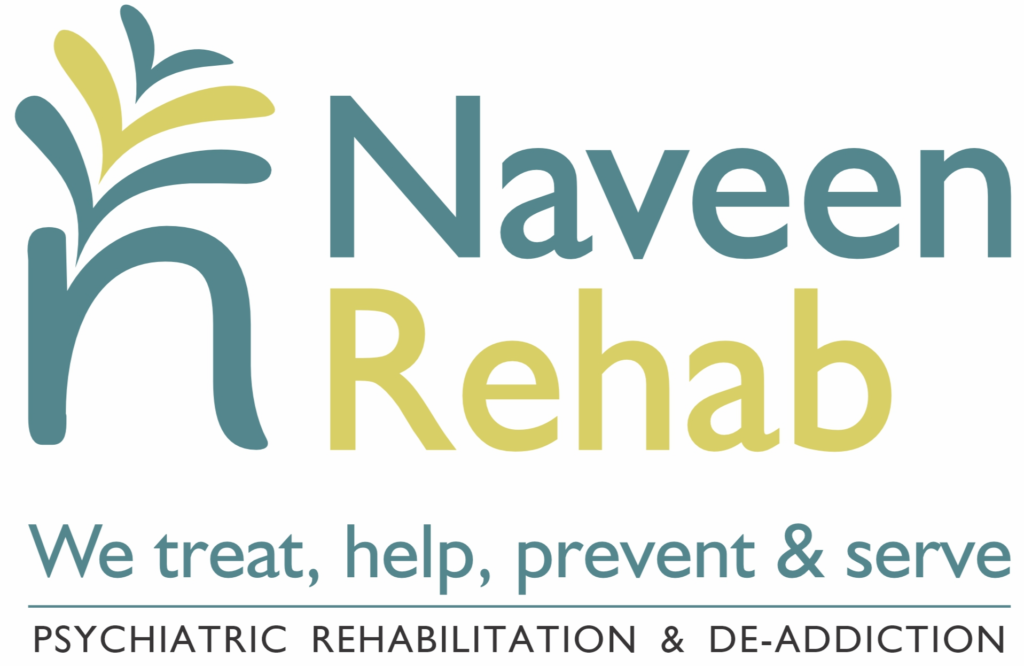Anxiety and Panic Attacks
You are not alone in your struggle with anxiety and panic attacks. Naveen Rehab can help you find relief and live a full and productive life.

Anxiety and Panic Attack Treatment @ Naveen
Naveen Rehab is a leading Anxiety Disorder Treatment Center in Coimbatore with experienced and professional anxiety and panic disorder therapists. Support is available through a 12-step anxiety treatment program in addition to a comprehensive panic disorder treatment plan. The treatment equips the patient to lead a normal life by escaping through the web of chaotic relationships and developing healthy interactions.
- What?
- Why?
- How?
Anxiety is a normal emotion that everyone experiences from time to time. However, for some people, anxiety can become a chronic condition that interferes with their daily life. If you are struggling with anxiety, there are treatments available that can help.
Panic attacks are sudden, intense episodes of fear that can cause physical symptoms such as a
racing heart, sweating, and shortness of breath.
Understanding anxiety and panic attacks is crucial for addressing their root causes and improving mental health. Anxiety often arises from a combination of factors, including prolonged stress, past traumatic experiences, and genetic predispositions, and it can manifest in various ways. For example, generalized anxiety disorder (GAD) is marked by excessive, persistent worry about different aspects of life, often without a clear trigger. Social anxiety causes intense fear or discomfort in social situations, leading to avoidance behaviors that can impact relationships and opportunities. Specific phobias involve overwhelming fear of particular objects or situations, such as heights, animals, or flying. Panic attacks, on the other hand, are sudden, intense episodes of fear or discomfort that peak within minutes and may involve severe physical symptoms like a racing heart, chest pain, difficulty breathing, or dizziness. These attacks can occur in response to a stressful situation, but often they appear without any clear trigger, intensifying feelings of uncertainty and fear.
Both anxiety and panic attacks can significantly disrupt daily life, affecting one’s ability to function in various settings. Whether it’s difficulty concentrating at work or school, avoiding social interactions, or struggling to maintain personal relationships, the impact on day-to-day activities can be profound. This ongoing distress may also affect overall well-being, causing emotional exhaustion, a sense of isolation, and decreased productivity. When left unchecked, anxiety can lead to additional physical health issues such as insomnia, digestive problems, and chronic fatigue, further compounding the challenges faced. Recognizing the early signs of anxiety and panic—such as increased worry, physical tension, or trouble focusing—can be key to taking action before these conditions worsen. Early intervention, such as adopting stress-management techniques, seeking therapy, or exploring medication options, can significantly reduce their impact and improve quality of life. By gaining awareness of your symptoms and implementing coping strategies, you can regain control over your mental health and enhance your overall well-being.
Genetics: Anxiety disorders can run in families, suggesting that there may be a genetic component.
Brain chemistry: People with anxiety disorders may have imbalances in certain brain chemicals, such as serotonin and norepinephrine.
Life experiences: Traumatic or stressful life events, such as childhood abuse, can increase the risk of developing anxiety disorders.
Personality: People with certain personality traits, such as shyness or perfectionism, may be
more prone to anxiety disorders.
Medical conditions: Some medical conditions, such as thyroid problems and heart disease, can also cause anxiety symptoms.
Substance abuse: Alcohol and drug abuse can trigger or worsen anxiety symptoms.
It is important to note that anxiety disorders can be caused by a combination of factors, and not everyone who experiences one or more of these risk factors will develop an anxiety disorder. If you are concerned that you may have an anxiety disorder, it is important to talk to
a doctor or mental health professional.
In addition to genetic predispositions and traumatic experiences, chronic stress and ineffective coping mechanisms play a significant role in the development of anxiety. When the body is subjected to prolonged stress, the brain’s chemical balance may shift, leading to heightened sensitivity to stressors and a more intense anxiety response. Over time, this ongoing stress can impair the brain’s ability to regulate emotions, making it harder to process fear and worry effectively. Without healthy coping mechanisms, such as mindfulness, relaxation techniques, or effective problem-solving skills, the cycle of stress and anxiety can become deeply ingrained, contributing to the onset of anxiety disorders.
Environmental factors also play a critical role in triggering or exacerbating anxiety. Everyday challenges like workplace demands, strained relationships, or financial uncertainties can create significant emotional burdens. These external pressures, when paired with internal vulnerabilities like genetic predispositions or imbalances in brain chemistry, can amplify feelings of overwhelm and unease. For instance, someone with a predisposition to anxiety might find it harder to navigate high-pressure situations, leading to avoidance behaviors or difficulty focusing on solutions. Addressing both the internal and external contributors to anxiety is essential for effective management and long-term resilience.
Physical symptoms: These can include a racing heart, sweating, trembling, shortness of
breath, nausea, dizziness, and muscle tension.
Mental symptoms: These can include worry, fear, nervousness, feeling on edge, difficulty
concentrating, trouble sleeping, and irritability.
Behavioral symptoms: These can include avoiding certain situations, having panic attacks,
and engaging in safety behaviors (such as checking things repeatedly).
These symptoms of anxiety and panic attacks can vary widely in terms of intensity and frequency. While some individuals may experience these symptoms only occasionally, others may face them on a more regular basis, making it difficult to lead a stable and fulfilling life. For some, anxiety can become so overwhelming that it interferes with daily functioning, making even simple tasks feel insurmountable. Everyday activities such as going to work, attending social events, or performing household chores can become sources of stress and avoidance. The unpredictability of panic attacks, which often strike without warning, can be especially distressing. The intense fear and physical discomfort that accompany these attacks may lead individuals to develop a heightened sense of anxiety about having another attack, resulting in a vicious cycle of avoidance behaviors, where individuals begin to limit their social interactions or avoid certain situations altogether. This isolation can exacerbate feelings of loneliness and alienation.
In addition to the immediate emotional and psychological impact, prolonged anxiety can also manifest in physical health concerns. Chronic anxiety is often linked to digestive issues, such as irritable bowel syndrome (IBS), as the body’s stress response can affect the digestive system. Tension and stress can also contribute to frequent headaches, muscle aches, and persistent fatigue, making it harder for individuals to find relief and recover. The long-term effects of anxiety can take a toll on a person’s overall emotional well-being. As anxiety persists, it can contribute to feelings of hopelessness, helplessness, and even depression, creating a sense that the future may be uncertain or overwhelming. The cumulative impact of anxiety on both physical and emotional health underscores the importance of early intervention, self-care strategies, and professional support in managing the condition.


